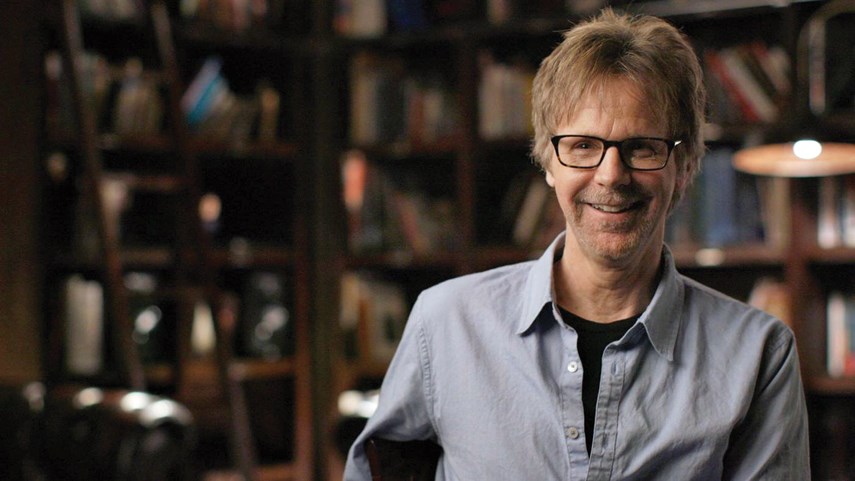Vancouver JFL Northwest Comedy and Film Festival, until March 10 at various venues. Visit jflnorthwest.com for full schedule.
The cause of death is obvious – and kind of hilarious.
Inconsistent, subversive and silly, the Dana Carvey Show’s brand of sketch comedy was a misfit amid the carefully plotted, plodding sitcoms that dominated ABC primetime in the 1990s.
The show was terminated after seven episodes – or about 193 fewer than Coach.
As JFL NorthWest descends on Vancouver from March 1 to 10, featuring stand-up comics such as Bill Burr at the Orpheum and Maria Bamford at the Vogue, Vancity Theatre is set to screen the Canadian premiere of Too Funny To Fail, a documentary that chronicles the Dana Carvey Show’s blinding brilliance and premature demise.
At first, director Josh Greenbaum seems to function as a traffic collision reconstruction analyst. He rounds up the show’s cast, including Stephen Colbert and Steve Carrell, showrunner and writer Robert Smigel, and Carvey himself – so he can demonstrate just where the sports car broke through the guardrail.
At 9 p.m. Tim Allen would grunt and make amends with his wife based on the advice of the neighbour. It was a comedy, and on paper it made perfect sense that Home Improvement’s massive audience would also enjoy The Dana Carvey Show at 9:30 p.m.
They did not.
Greenbaum remembers being in 11th grade, waiting to see his Saturday Night Live hero. Carvey had been the Church Lady, Hans (of Hans and Franz), Garth (of Wayne’s World) and George Bush.
In the opening moments of his new show Carvey was Bill Clinton. It was fine, it was standard. And then the president unbuttoned his shirt, revealing extra nipples that spurted fountains of milk while Clinton explained, in his folksy Arkansas grumble, that he was prepared to feed all the babies, puppies and kittens of America.
“I remember my dad getting up and being like, ‘Well, I’m not watching this garbage.’” Greenbaum says, laughing. In the documentary, we find that about six million Home Improvement fans had the same reaction as Greenbaum’s dad.
But Greenbaum remembers leaning forward.
Home Improvement was relentlessly formulaic but Carvey’s anarchistic clowns seemed to wrest the airwaves from ABC’s responsible adults, portraying the genteel racists of Maine, the Ambiguously Gay Duo, the male Madonna, Madonny, and the stupidest pranksters in the history of pranking or stupidity.
To illustrate the chasm between the two show’s sensibilities, Greenbaum shows an ABC promotional advertisement to Colbert, Carrell and Carvey.
The audience hears a narrator’s baritone: “A parent’s worst fear: losing a child.”
And then we see a tearful Jonathan Taylor Thomas saying: “I don’t want to die, dad.”
The episode is “so powerful, it hits home,” the narrator tells us.
“A special Home Improvement,” the voice booms before picking up the tempo just a bit, like a pilot fearful he’s running out of runway. “Followed by the Diet Mug Root Beer Dana Carvey Show.”
Upon seeing it, Colbert, Carrell and Carvey each burst into uncontrollable laughter.
“That just says it all,” Carvey says.
About two months after it appeared, the show was gone.
“What happened?” Greenbaum remembers wondering.
It was still on his mind after he made Behind the Mask, a documentary series on sports mascots for Hulu.
The video-on-demand service reached out to Greenbaum to discuss doing 30 for 30-style feature documentaries dealing with pop culture.
The biggest hurdle was getting Carvey to agree, Greenbaum says.
They met at a comedy club. Greenbaum recalls toying with how he might phrase the question: “Can we bring back up the thing you made that all but sank your career?”
But Carvey agreed.
The documentary is largely a celebration of the show but the appearance of Ted Harbert, the one-time chairman of ABC Entertainment gives the movie an extra dimension by offering a voice to the suits.
Harbert talks about the challenges of being an executive for ABC while overseeing a show that was decidedly not Disney-friendly.
His method for dealing with producers, which he calls “awful but 100 per cent right,” is to love them every day until you cancel them.
In terms of ratings and longevity, the show was a failure.
But for Greenbaum, the show is an example of the value of failure.
“Had the show started to . . . cater to the desires of the network and water down the vision that they had, there’s no way you and I would be sitting here talking about it.”
Greenbaum is especially proud of showing a rough cut to Carvey. Carvey’s two sons, both comedy-minded 20-somethings, ended up joining the screening.
“One of them said to Dana, ‘Dad, this show is punk rock, man! This is punk rock television.’”



